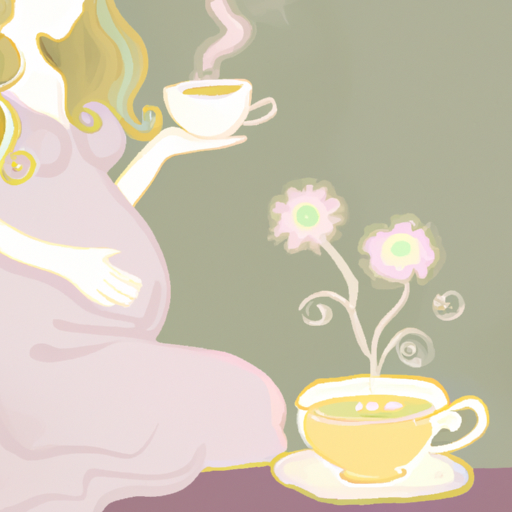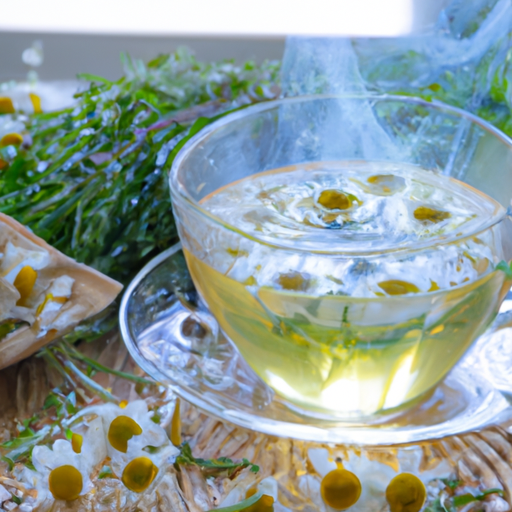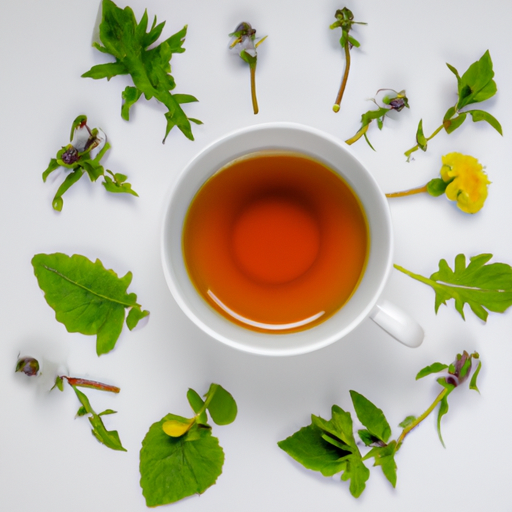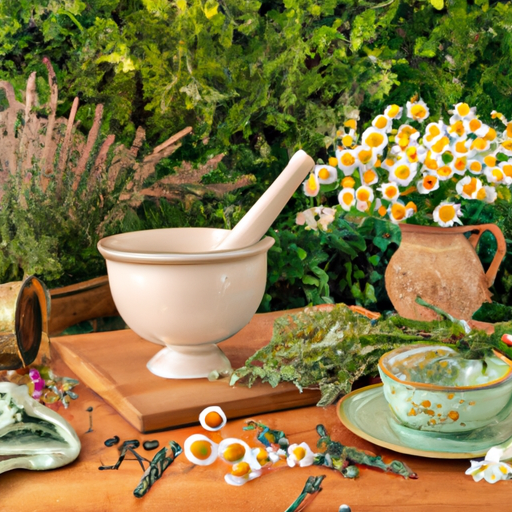Pregnancy is a wonderful experience full of anticipation and joy. Yet, it can also bring about some discomforts. As a mom-to-be, I recognize the value of seeking out safe and natural solutions to relieve these symptoms.
One such remedy that has gained popularity is herbal tea. When it comes to choosing the right herbal tea during pregnancy, it’s essential to be well-informed and make choices that prioritize the health and well-being of both mother and baby.
In this article, I will explore the benefits of herbal tea during pregnancy and provide a comprehensive guide on the safe options to consider. Additionally, I will discuss the herbal teas that should be avoided to prevent any potential risks. We will also delve into the proper way to brew herbal tea to extract its maximum benefits.
Whether you’re experiencing morning sickness, insomnia, or simply looking for a comforting beverage, incorporating herbal tea into your pregnancy routine can be a soothing and enjoyable experience. Let’s explore the wonderful world of herbal teas and discover how they can enhance your journey to motherhood.
Key Takeaways
- Choose organic and caffeine-free herbal teas for safety during pregnancy.
- Safe herbal teas for pregnancy include chamomile, peppermint, ginger, raspberry leaf, and lemon balm.
- Avoid licorice tea as it may increase the risk of preterm birth and developmental issues.
- Consult with a healthcare provider before consuming herbal teas during pregnancy.
Benefits of Herbal Tea During Pregnancy
Drinking herbal tea during pregnancy can provide numerous benefits for both the mother and the baby, creating a soothing and comforting experience. Herbal teas are known for their health benefits and can be a great alternative to caffeinated beverages.
Many herbal teas are safe to consume during pregnancy and can help with common pregnancy discomforts. One of the main health benefits of herbal tea during pregnancy is its ability to relieve nausea and morning sickness. Ginger tea, for example, has been used for centuries to alleviate these symptoms. It is recommended to choose organic and caffeine-free herbal teas to ensure the safety of both the mother and the baby. Some recommended brands include Traditional Medicinals, Yogi Tea, and Earth Mama.
In addition to relieving nausea, herbal teas can also provide other health benefits during pregnancy. Chamomile tea, for instance, can help with insomnia and promote relaxation. Peppermint tea is known for its ability to ease indigestion and bloating. Raspberry leaf tea is often recommended in the third trimester to strengthen the uterus and prepare the body for labor.
As we move into the subsequent section about safe herbal teas for pregnancy, it is important to note that while herbal teas can have many benefits, not all herbal teas are safe during pregnancy. It’s crucial to consult with a healthcare provider to ensure the safety and appropriateness of the herbal teas you choose to consume.
Safe Herbal Teas for Pregnancy
Try exploring different flavors like chamomile or peppermint, which are known to be safe options during pregnancy, and have been enjoyed by many expecting mothers. Herbal teas can provide numerous benefits during pregnancy, including aiding fertility and alleviating morning sickness.
To help you make informed choices, here are some of the best herbal teas for pregnancy:
| Herbal Tea | Benefits |
|---|---|
| Chamomile | Promotes relaxation and helps with sleep |
| Peppermint | Relieves nausea and aids digestion |
| Ginger | Eases morning sickness and reduces inflammation |
| Raspberry Leaf | Strengthens the uterus and prepares for labor |
| Lemon Balm | Reduces anxiety and supports a calm mood |
These herbal teas have been widely used by pregnant women and are generally considered safe. However, it’s always a good idea to consult with your healthcare provider before incorporating any new herbal teas into your routine.
As we move on to discussing herbal teas to avoid during pregnancy, it’s important to note that not all herbal teas are safe for expectant mothers.
Herbal Teas to Avoid During Pregnancy
When you’re expecting, it’s important to be aware of certain herbal teas that aren’t recommended during pregnancy. While herbal teas can have many health benefits, some varieties may pose a risk to the developing baby. Here are four herbal teas to avoid during pregnancy:
-
Licorice tea: This tea contains a compound called glycyrrhizin, which has been associated with an increased risk of preterm birth and developmental issues in babies.
-
Chamomile tea: Although chamomile tea is generally safe, it’s best to avoid consuming large amounts of it during pregnancy. High doses of chamomile may increase the risk of miscarriage.
-
Peppermint tea: Peppermint tea is known for its soothing properties, but excessive consumption during pregnancy may lead to heartburn and worsen acid reflux symptoms.
-
Black cohosh tea: Black cohosh is commonly used to induce labor, so it’s essential to avoid this tea during pregnancy as it may cause contractions and potentially harm the baby.
While it’s important to avoid these herbal teas, there are plenty of safe alternatives to enjoy. In the next section, we’ll discuss how to brew herbal tea properly to ensure maximum taste and health benefits without compromising your pregnancy.
How to Brew Herbal Tea Properly
To get the most out of your soothing brew, let’s explore the proper way to prepare your favorite herbal infusion. Brewing techniques and steeping times play a crucial role in extracting the maximum flavor and benefits from your herbal tea. Whether you prefer loose leaf or tea bags, following these simple steps will ensure a perfect cup every time.
First, start by boiling fresh, filtered water. The quality of the water can greatly impact the taste of your tea. Next, select the appropriate amount of tea leaves or tea bags for your desired strength. Refer to the table below for recommended steeping times based on different types of herbal tea.
| Herbal Tea | Steeping Time |
|---|---|
| Chamomile | 5-7 minutes |
| Peppermint | 3-5 minutes |
| Ginger | 7-10 minutes |
| Rooibos | 5-7 minutes |
Once you’ve added the tea to your cup, pour the hot water over it and let it steep for the designated time. This allows the water to extract the beneficial compounds from the herbs, resulting in a flavorful and therapeutic beverage.
Now that you know the proper brewing techniques and steeping times, you can confidently incorporate herbal tea into your pregnancy routine. It’s a wonderful way to relax and enjoy a moment of tranquility during this special time.
Tips for Incorporating Herbal Tea into Your Pregnancy Routine
Enhance your pregnancy routine with the soothing and therapeutic benefits of incorporating herbal infusions into your daily regimen. During pregnancy, it’s important to choose herbal teas that are caffeine-free to avoid any potential harm to your baby.
There are many soothing herbal blends available that can provide relief from common pregnancy symptoms. When selecting herbal teas, look for blends specifically formulated for pregnant women. These blends often include herbs like chamomile, ginger, and peppermint, which are known for their calming and digestive properties.
Chamomile can help with relaxation and sleep, while ginger can ease nausea and aid digestion. Peppermint is known to soothe an upset stomach and relieve bloating.
To incorporate herbal tea into your pregnancy routine, start by choosing a few different blends that address your specific needs. You can drink herbal tea throughout the day, but it’s especially beneficial to have a cup in the morning to help with morning sickness or in the evening to promote relaxation before bed.
In addition to herbal tea, there are other natural remedies for pregnancy symptoms that you can explore, such as aromatherapy, acupuncture, and certain exercises. By incorporating these natural remedies into your routine, you can find relief from common pregnancy discomforts without relying on medications.
Other Natural Remedies for Pregnancy Symptoms
When it comes to finding natural remedies for pregnancy symptoms, there are several options to consider. Herbal infusions, such as chamomile or ginger tea, can help alleviate nausea and promote relaxation.
Aromatherapy with essential oils like lavender or peppermint can provide relief from headaches or fatigue.
Additionally, incorporating meditation and relaxation techniques into your daily routine can help reduce stress and promote overall well-being during pregnancy.
Herbal Infusions
While pregnant, you can enjoy a cup of herbal infusion that’ll provide a soothing and refreshing experience. Herbal teas have been used for centuries to support women’s health during different stages of pregnancy. Here are some herbal teas that are safe to consume while pregnant:
-
Raspberry leaf tea: Known for its benefits in promoting fertility, this tea is also beneficial during pregnancy as it helps tone the uterus and prepare for labor.
-
Nettle leaf tea: Packed with essential nutrients like iron and calcium, nettle leaf tea can support overall pregnancy wellness.
-
Chamomile tea: This gentle and calming herbal infusion can help with relaxation and relieve pregnancy-induced insomnia.
-
Ginger tea: Known for its ability to ease nausea and morning sickness, ginger tea can be a helpful remedy during pregnancy.
Herbal infusions can also be beneficial for postpartum healing.
Now, let’s explore the benefits of aromatherapy during pregnancy.
Aromatherapy
Experience the soothing benefits of aromatherapy during pregnancy and create a serene environment for ultimate relaxation. Essential oils can be a wonderful addition to your self-care routine while pregnant. However, it’s important to choose oils that are safe for both you and your baby.
Lavender, chamomile, and ylang-ylang are gentle and calming options. Using a diffuser is a popular way to enjoy the benefits of essential oils. Simply add a few drops to water and let the diffuser release the aroma into the air. You can also create your own diffuser blends by combining different oils to suit your preferences. Just remember to use essential oils sparingly and avoid any that may cause skin sensitivity.
Now, let’s explore meditation and relaxation techniques for a well-rounded approach to self-care during pregnancy.
Meditation and Relaxation Techniques
To achieve a state of deep relaxation during pregnancy, try incorporating meditation techniques into your self-care routine and allow yourself to fully unwind. Meditation has been shown to reduce stress and anxiety, promote better sleep, and enhance overall well-being during pregnancy. Here are some techniques you can try:
-
Pregnancy yoga: Gentle yoga poses combined with deep breathing exercises can help you relax your body and mind, while also improving flexibility and strength.
-
Deep breathing exercises: Take slow, deep breaths in through your nose and out through your mouth. Focus on filling your belly with air and releasing any tension with each exhale.
-
Guided imagery: Close your eyes and imagine yourself in a peaceful and serene setting, such as a beach or a forest. Visualize the sights, sounds, and smells to create a sense of calm.
-
Progressive muscle relaxation: Starting from your toes and working your way up to your head, tense and then relax each muscle group in your body. This technique helps release tension and promotes deep relaxation.
-
Mindfulness meditation: Focus your attention on the present moment, observing your thoughts and sensations without judgment. This can help you stay grounded and reduce stress.
Incorporating meditation and relaxation techniques into your daily routine can be a valuable tool for promoting relaxation and well-being during pregnancy.
Now let’s explore how you can safely enjoy herbal tea during this special time.
Conclusion: Enjoying Herbal Tea Safely During Pregnancy
You can safely enjoy herbal tea during pregnancy and savor its soothing benefits for a relaxing and comforting experience. It’s important, however, to choose safe herbal tea options and be aware of any potential risks.
While some herbal teas have been used for centuries to support pregnancy and promote relaxation, others may have adverse effects on you and your baby. When selecting herbal tea, it’s crucial to avoid teas that contain potentially harmful ingredients such as caffeine, certain herbs, or artificial additives. Instead, opt for herbal teas that are specifically labeled as safe for pregnancy or consult with your healthcare provider for recommendations.
Some safe options include ginger tea, peppermint tea, and chamomile tea, which can help ease symptoms like nausea, indigestion, and anxiety. Although herbal teas are generally considered safe, it’s important to remember that they’re not regulated by the FDA, and their effects on pregnancy haven’t been extensively studied.
Some herbal teas may have potential risks, including uterine contractions or interference with nutrient absorption. It’s always best to err on the side of caution and consult with your healthcare provider before incorporating herbal teas into your pregnancy routine.
Enjoying herbal tea safely during pregnancy can provide a wonderful way to relax and unwind. By choosing safe herbal tea options and being aware of potential risks, you can indulge in the soothing benefits of herbal tea while ensuring the well-being of both you and your baby. Remember to always consult with your healthcare provider for personalized advice and enjoy your herbal tea in moderation for a truly enjoyable and comforting experience.
Frequently Asked Questions
Can herbal tea be a substitute for prenatal vitamins during pregnancy?
Herbal tea is not a substitute for prenatal vitamins during pregnancy. While herbal tea can offer some benefits, such as relaxation and hydration, it lacks the essential nutrients found in prenatal vitamins that support fetal development.
Is it safe to drink herbal teas made with multiple ingredients during pregnancy?
It is generally safe to drink herbal teas made with multiple ingredients during pregnancy, but it is important to avoid certain herbal tea ingredients that may be harmful. Herbal teas can provide potential benefits during pregnancy, but it is advisable to consult with a healthcare professional for personalized advice.
Can herbal tea help with morning sickness during pregnancy?
Herbal tea can be a helpful remedy for morning sickness during pregnancy. It has been known to alleviate nausea and provide relief. Additionally, herbal tea offers various benefits for pregnant women, such as hydration and soothing properties.
Are there any herbal teas that can help with insomnia during pregnancy?
During pregnancy, it’s important to prioritize sleep and find safe ways to manage insomnia. Some herbal remedies, such as chamomile or lavender tea, can act as natural sleep aids, but always consult with your healthcare provider before trying any new herbal teas.
Are there any herbal teas that can help with constipation during pregnancy?
During pregnancy, some herbal teas can help with constipation. Safe options include ginger, peppermint, and dandelion root tea. However, it’s important to avoid certain herbal teas like chamomile, sage, and licorice root as they can be unsafe during pregnancy.
Conclusion
In conclusion, incorporating herbal tea into your pregnancy routine can be a safe and beneficial way to support your overall well-being. However, it’s important to choose the right herbal teas and brew them properly to avoid any potential risks.
One interesting statistic to consider is that according to a study published in the Journal of Obstetrics and Gynecology, approximately 30% of pregnant women in the United States consume herbal teas during pregnancy. This shows the popularity and interest in using herbal teas as a natural remedy during this special time.
Remember to always consult with your healthcare provider before adding any new herbal teas to your pregnancy routine.










